Peugeot 5008 vs VW ID.3 – Which car suits you better?
Two cars, one duel: Peugeot 5008 meets VW ID.3.
Which one wins in performance, efficiency and value for money? Find out now!
Costs and Efficiency:
Looking at overall running costs, both models reveal some interesting differences in everyday economy.
VW ID.3 has a clearly perceptible advantage in terms of price – it starts at 28600 £, while the Peugeot 5008 costs 37600 £. That’s a price difference of around 9026 £.
In terms of energy consumption, the advantage goes to the VW ID.3: with 14.50 kWh per 100 km, it’s noticeable more efficient than the Peugeot 5008 with 17.80 kWh. That’s a difference of about 3.30 kWh.
As for range, the Peugeot 5008 performs to a small extent better – achieving up to 674 km, about 69 km more than the VW ID.3.
Engine and Performance:
Power, torque and acceleration say a lot about how a car feels on the road. This is where you see which model delivers more driving dynamics.
When it comes to engine power, the VW ID.3 has a hardly perceptible edge – offering 326 HP compared to 325 HP. That’s roughly 1 HP more horsepower.
In acceleration from 0 to 100 km/h, the VW ID.3 is a bit quicker – completing the sprint in 5.70 s, while the Peugeot 5008 takes 6.50 s. That’s about 0.80 s faster.
In terms of top speed, the Peugeot 5008 performs hardly perceptible better – reaching 220 km/h, while the VW ID.3 tops out at 200 km/h. The difference is around 20 km/h.
There’s also a difference in torque: VW ID.3 pulls minimal stronger with 545 Nm compared to 511 Nm. That’s about 34 Nm difference.
Space and Everyday Use:
Whether family car or daily driver – which one offers more room, flexibility and comfort?
Seats: Peugeot 5008 offers noticeable more seating capacity – 7 vs 5.
In curb weight, Peugeot 5008 is minimal lighter – 1700 kg compared to 1787 kg. The difference is around 87 kg.
In terms of boot space, the Peugeot 5008 offers decisively more room – 994 L compared to 385 L. That’s a difference of about 609 L.
In maximum load capacity, the Peugeot 5008 performs significantly better – up to 2310 L, which is about 1043 L more than the VW ID.3.
When it comes to payload, Peugeot 5008 evident takes the win – 699 kg compared to 473 kg. That’s a difference of about 226 kg.
Who comes out on top?
Overall, the Peugeot 5008 shows itself to be outperforms in nearly all aspects and secures the title of DriveDuel Champion.
It convinces with the more balanced overall package and proves to be the more versatile choice for everyday use.
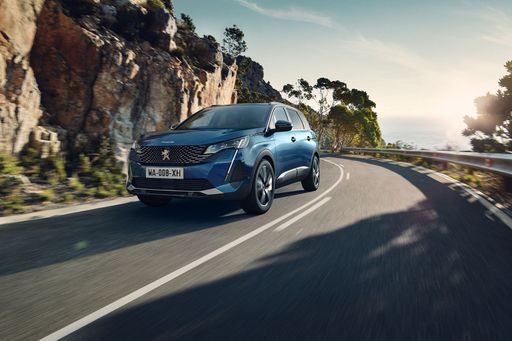
Peugeot 5008
Peugeot 5008
The Peugeot 5008 impresses with its sleek design and spacious interior, making it an appealing choice for families and those needing extra room. Its elegant exterior lines are complemented by a well-crafted cabin that offers both comfort and versatility, ideal for longer journeys or everyday use. With a range of modern features and technology, the 5008 delivers a balanced blend of style and functionality that enhances the driving experience.
details @ media.stellantis.com
@ media.stellantis.com
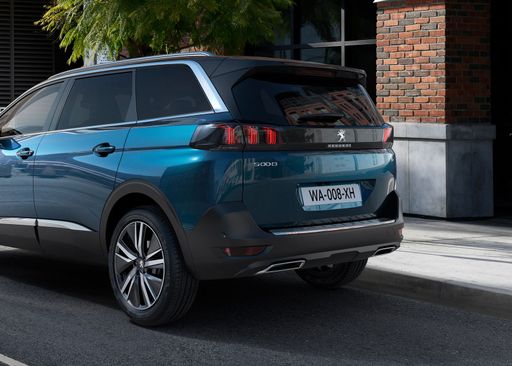 @ media.stellantis.com
@ media.stellantis.com
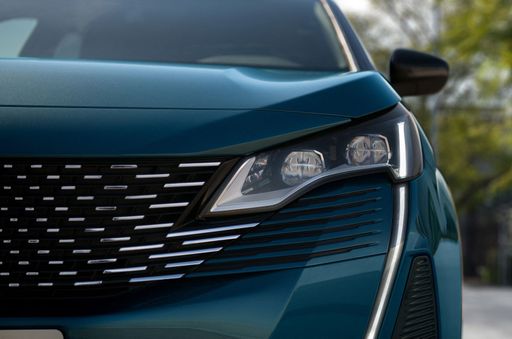 @ media.stellantis.com
@ media.stellantis.com
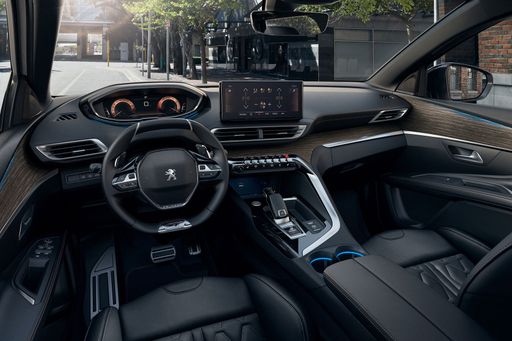 @ media.stellantis.com
@ media.stellantis.com
VW ID.3
The VW ID.3 represents Volkswagen's entry into the world of electric vehicles, offering a modern design that combines functionality with sustainability. Inside, you'll find a spacious and tech-forward interior, providing a comfortable driving experience while maintaining a focus on environmentally friendly materials. The ID.3's performance delivers a smooth and responsive feel on the road, making it a strong contender in the growing electric car market.
details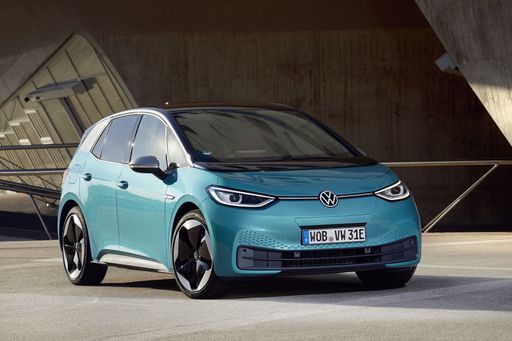 @ Volkswagen
@ Volkswagen
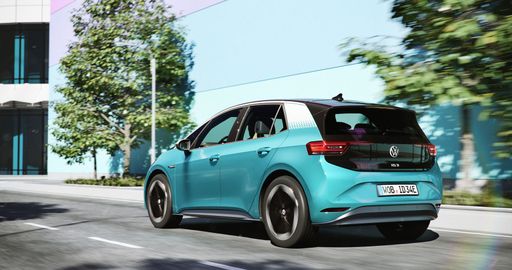 @ Volkswagen
@ Volkswagen
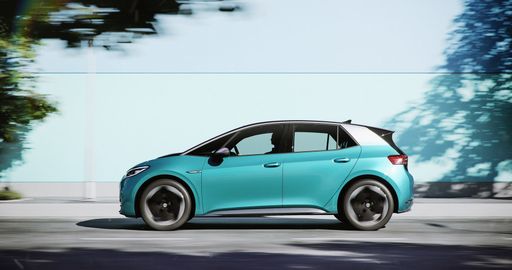 @ Volkswagen
@ Volkswagen
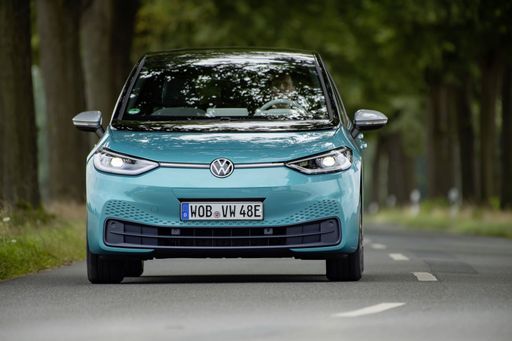 @ Volkswagen
@ Volkswagen
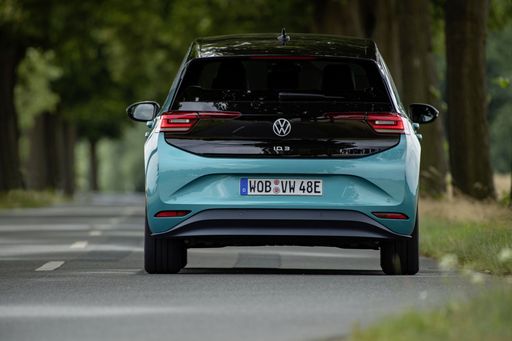 @ Volkswagen
@ Volkswagen
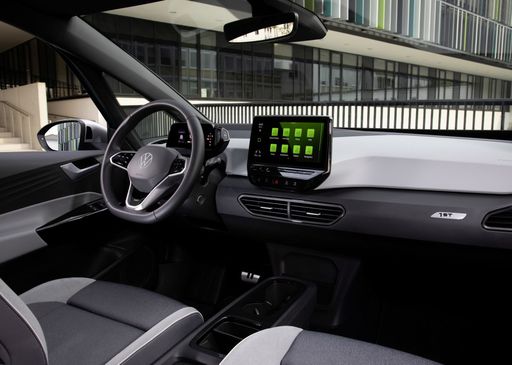 @ Volkswagen
@ Volkswagen
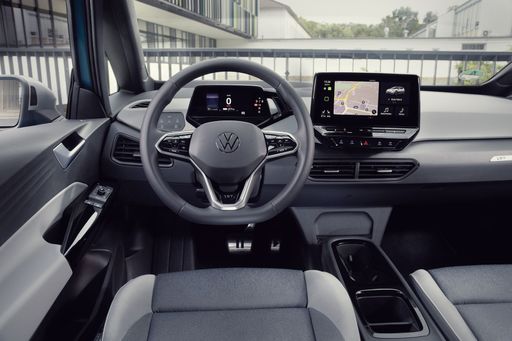 @ Volkswagen
@ Volkswagen

|

|
|
|
|
Costs and Consumption |
|
|---|---|
|
Price
37600 - 53600 £
|
Price
28600 - 49300 £
|
|
Consumption L/100km
1 - 5.6 L
|
Consumption L/100km
-
|
|
Consumption kWh/100km
17.8 - 18.6 kWh
|
Consumption kWh/100km
14.5 - 15.8 kWh
|
|
Electric Range
79 - 674 km
|
Electric Range
383 - 605 km
|
|
Battery Capacity
0.4 - 96.9 kWh
|
Battery Capacity
52 - 79 kWh
|
|
co2
0 - 127 g/km
|
co2
0 g/km
|
|
Fuel tank capacity
55 L
|
Fuel tank capacity
-
|
Dimensions and Body |
|
|---|---|
|
Body Type
SUV
|
Body Type
Hatchback
|
|
Seats
5 - 7
|
Seats
5
|
|
Doors
5
|
Doors
5
|
|
Curb weight
1700 - 2406 kg
|
Curb weight
1787 - 1993 kg
|
|
Trunk capacity
294 - 994 L
|
Trunk capacity
385 L
|
|
Length
4791 mm
|
Length
4264 mm
|
|
Width
1895 mm
|
Width
1809 mm
|
|
Height
1694 mm
|
Height
1564 mm
|
|
Max trunk capacity
1815 - 2310 L
|
Max trunk capacity
1267 L
|
|
Payload
534 - 699 kg
|
Payload
437 - 473 kg
|
Engine and Performance |
|
|---|---|
|
Engine Type
Plugin Hybrid, Electric, Petrol MHEV
|
Engine Type
Electric
|
|
Transmission
Automatic
|
Transmission
Automatic
|
|
Transmission Detail
Dual-Clutch Automatic, Reduction Gearbox
|
Transmission Detail
Reduction Gearbox
|
|
Drive Type
Front-Wheel Drive, All-Wheel Drive
|
Drive Type
Rear-Wheel Drive
|
|
Power HP
145 - 325 HP
|
Power HP
170 - 326 HP
|
|
Acceleration 0-100km/h
6.5 - 10.2 s
|
Acceleration 0-100km/h
5.7 - 8.2 s
|
|
Max Speed
170 - 220 km/h
|
Max Speed
160 - 200 km/h
|
|
Torque
230 - 511 Nm
|
Torque
310 - 545 Nm
|
|
Number of Cylinders
3 - 4
|
Number of Cylinders
-
|
|
Power kW
107 - 239 kW
|
Power kW
125 - 240 kW
|
|
Engine capacity
1199 - 1598 cm3
|
Engine capacity
-
|
General |
|
|---|---|
|
Model Year
2024 - 2025
|
Model Year
2024 - 2025
|
|
CO2 Efficiency Class
B, A, D
|
CO2 Efficiency Class
A
|
|
Brand
Peugeot
|
Brand
VW
|
Is the Peugeot 5008 offered with different drivetrains?
Available configurations include Front-Wheel Drive or All-Wheel Drive.
The prices and data displayed are estimates based on German list prices and may vary by country. This information is not legally binding.
